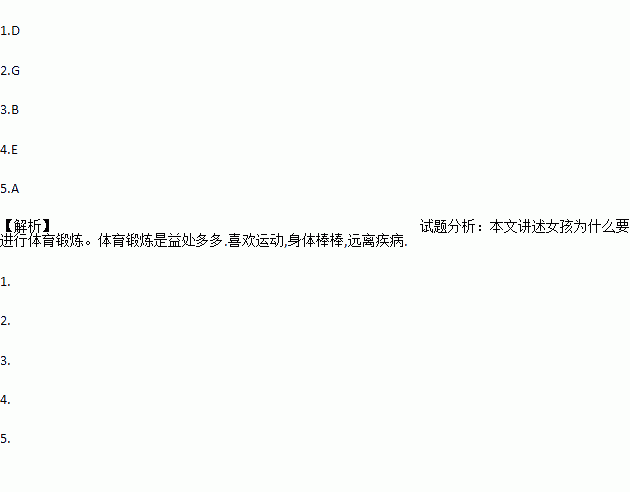题目内容
Why play sports? You might say “to get exercise” and you’d be right.
To have fun? That’s true, too. But there’s more. 1.According to the Women’s Sports Foundation, girls who play sports get a lot more than just fit.
Girls who play sports do better in school. You might think that athletics will take up all your study time. 2.Exercise improves learning, memory, and concentration, which can give active girls an advantage in the classroom.
Girls who play sports learn teamwork and goal-setting skills. 3. When working with coaches, trainers, and teammates to win games and achieve goals, you’re learning how to be successful. Those skills will serve you well at work and in family life.
Sports are good for a girl’s health. In addition to being fit and keeping a healthy weight, girls who play sports are also less likely to smoke. And later in life, girls who exercise are less likely to get breast cancer or osteoporosis(骨质酥松症).
Playing sports improves self-confidence. 4.Why? It builds
confidence when you know you can practice, improve, and achieve your goals. Sports are also a feel-good activity because they help girls get in shape, keep a healthy weight, and make new friends.
5.Playing sports can reduce stress and help you feel a little happier. How? The brain chemicals released during exercise improve a person’s mood. Friends are another mood-lifter. And being in a team creates tight bonds between friends. It’s good to know your teammates will support you----- both on and off the field!
A. Exercise cuts the pressure.
B. Sports teach valuable life skills.
C. Regular exercise increases quality of life.
D. In fact, there are at least five more reasons.
E. Girls who play sports feel better about themselves.
F.Playing sports offers children more than just physical benefits.
G. But research shows that girls who play sports do better in school than those who don’t.

